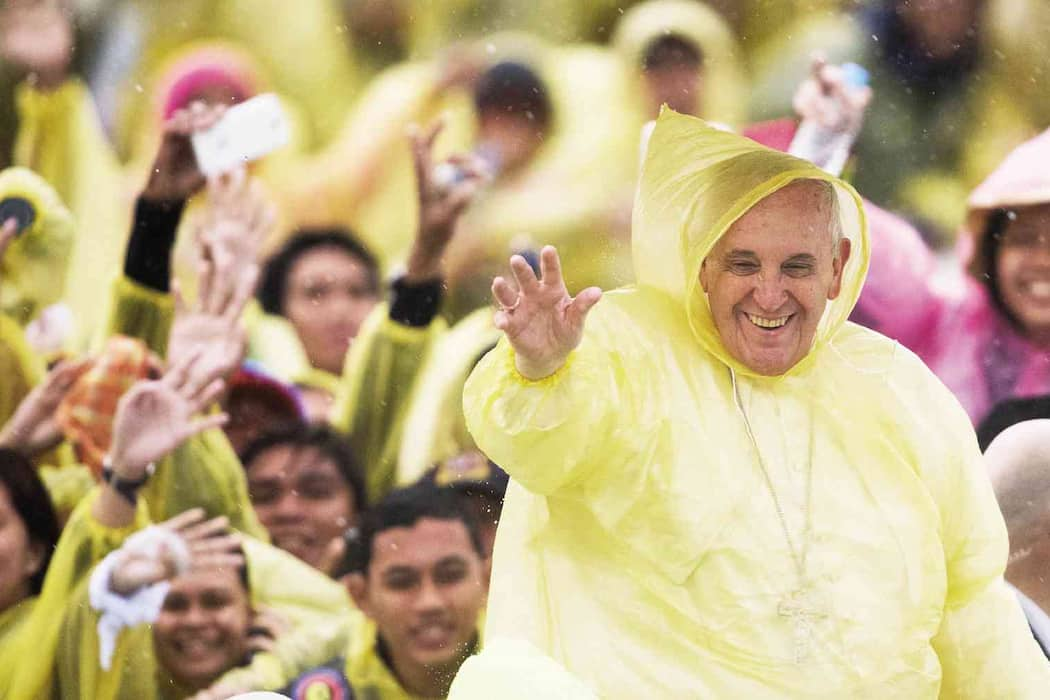Francis’s papacy coincided with the more intentional phase of my Catholicism. One year after I participated in my first ever Ignatian silent retreat—when I didn’t know what “Ignatian” or “silent retreat” meant or, frankly, who a “Jesuit” was—he was elected pope.
The most transformative part of that retreat was when, on the penultimate day, I found myself doing a labyrinth prayer. I spent an eternity in the heart of that labyrinth: being embarrassed for staying too long; trying not to pay attention to people around me; and studiously following the prayer points.
I was starting to realize some deeply foundational things. I had questions about everything: about God, about Church, about faith. And I also had feelings about all of these things: anger, resentment, confusion.
But, I knew, at the root of my questions and feelings, I believed.
I believe in God.
As I was learning Ignatian spirituality throughout the world of Jesuit ministries in the Philippines, Francis, in parallel, was giving a global platform to these ministries and Ignatian spirituality, as a whole. To me, the highest, most intimate, and most powerful point of his papacy was his 2015 visit to Tacloban City, Philippines, which was flattened by Supertyphoon Haiyan two years earlier. He braved another typhoon there during his visit to be in solidarity with God’s people, celebrating Mass in the same dress as the hundreds of thousands waiting for him: a cheap, yellow poncho.

“You have a special place in my heart,” he told us. “When I saw that catastrophe from Rome, I felt I had to be here...Forgive me if I have no other words [for you].”
For the leader of the Catholic Church to say that, in the face of such daunting tragedy, meant the world. Throughout his papacy, I’ve left a Jesuit university with a philosophy degree, taught high-schoolers at a Jesuit prep school, did campus-ministry work at a Jesuit university, and currently do graduate studies at a Jesuit theologate.
It seems to me that, in the infancy of my faith, Francis got elected pope. I’ve grown, mainly influenced by this Ignatian vantage point.
And now, in the growing-up of my faith, he is gone.
His witness has been my faith’s coming-of-age story.
Last semester, I studied "The Church" with Richard Lennan. Affirmed by his remarkable depth and breadth of insight, I took home two theses: one, that we are Church—that I have, and had, a place in this Church. And, two, that the Church requires tilling—implying that it needs care. Constant care.
Francis’s passing left all of us with a lot of homework. Filled with Easter hope, how do we, the field-hospital, the big-tent Church, take the Synod on Synodality seriously?
How do we boldly follow the contours of our vocation and, together, become a most life-giving Church?
Ultimately, how do we lift ourselves up to God to bring God’s work to fulfillment?


